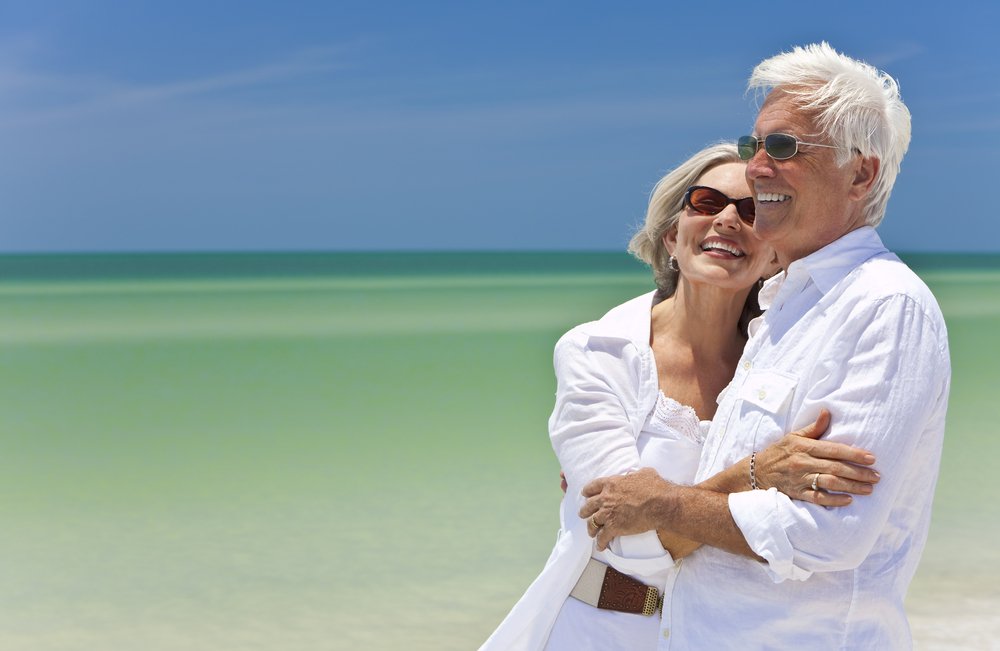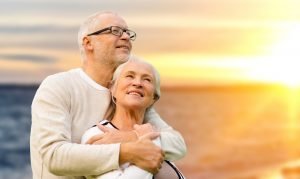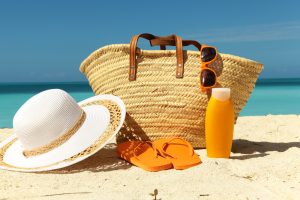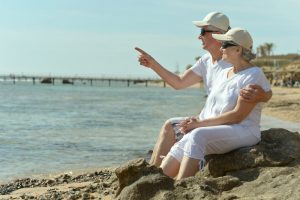According to The Skin Cancer Foundation, one in five Americans will develop skin cancer during their lifetime. The American Cancer Society (ACS) estimates that nearly 90,000 people will be diagnosed with melanoma and about 9,300 are expected to pass away from melanoma in 2017 alone.
UV Safety Month is held during July every year, putting focus on how during summer the extra exposure to UV rays can be damaging to unprotected skin. Prolonged exposure to UV rays significantly increase your risk of developing basal cell carcinoma, squamous cell carcinoma, and melanoma; thus, this month helps remind people why they should be taking a little extra time to ensure that they are protected before spending time out in the sun.
For our seniors with frailer skin, the risk is much higher. As reported by ACS, the average age of someone diagnosed with melanoma is 63.
At Unicity Healthcare, not only do our licensed, trained and experienced Home Health Aides help assist your loved one with things such as maintaining a daily routine. And during this time of year, they can help to protect your loved ones with general care during the summer months, such as being safe in the heat, and providing tips for sun protection.
Seniors And The Sun
According to the National Council on Skincare Prevention, the risk of common types of skin cancer is higher for older adults. As we age, our skin becomes thinner and doesn’t rejuvenate as easily. This makes us more susceptible to sunburn and other damage, including skin cancer.
Because of the cumulative effect UV rays have on older adults, who may have spent decades in the sun, skin cancer risk also increases as we age because of decreased autoimmune function. Additionally, benign skin lesions, brown spots, and other signs of aging might make it more difficult for older adults to identify potentially malignant spots in time for effective treatment.
Most skin cancer appears after age 50, in our senior years. Melanoma, the most serious form of skin cancer, is now one of the most common cancers and accounts for about three percent of skin cancer cases. UV exposure and sunburns are risk factors for the disease.
Other UV-related skin disorders include actinic keratoses and premature aging of the skin. Actinic keratoses are skin growths that occur on body areas exposed to the sun. Actinic keratoses are also a risk factor for squamous cell carcinoma.
Understand the Types Of UV Rays
Between 86 and 90 percent of all skin cancers are related to exposure to the sun’s ultraviolet rays. The sun releases different types of UV rays: UVB, UVA, and UVC. Exposure to UVB rays can cause visible effects: Sunburn, suntan, brown spots, wrinkles, and skin cancer.
As we have less protection from UVB rays, it is increasingly important to wear a sunscreen of at least SPF30 whenever you or a loved one is outdoors.
Additionally, the sun’s UVA rays could be considered invisible killers. These rays can cause wrinkles, brown spots, and skin cancer without a person even feeling warm or causing sunburn. For example, if your senior loved one enjoys sitting by the window in the mid-day sun, make sure they wear sunscreen on their face, hands and arms.
Chronic exposure to the sun also causes premature aging, which over time can make the skin become thick, wrinkled, and leathery. Up to 90 percent of the visible skin changes commonly attributed to aging are caused by the sun. With proper protection from UV radiation, most premature aging of the skin can be avoided.
Signs and Symptoms of Skin Cancer
Watch for:
- Any change on your skin, especially in the size or color of a mole, growth, or spot, or a new growth (even if it has no color)
- Scaliness, oozing, bleeding, or a change in the way a bump or nodule looks
- A sore that doesn’t heal
- The spread of pigmentation (color) beyond its border, such as dark coloring that spreads past the edge of a mole or mark
- A change in sensation, such as itchiness, tenderness, or pain
Practicing Sun Safety
Sun protection is even more important for your aging loved ones. Since prevention is key, by following sun safety tips, you may help your aging loved one reduce their risk of skin cancer for years to come.
Unicity Healthcare’s reputation is that we surround ourselves with strong and respected professionals who specialize in providing care solutions to the elderly community. Our care managers are either Licensed Social Workers or Registered Nurses, with significant experience working with the elderly community.
Thus, in order to help keep your senior loved ones protected from the sun, we provide the following UV prevention tips:
- Stay Indoors When The Sun Is Brightest — avoid the heat and danger of UVB radiation by encouraging your aging loved one to stay indoors between the hours of 10 AM and 4 PM during the peak of summer.
- Always Wear SPF 30 And Reapply Frequently – the sun’s rays can be dangerous for your loved one’s skin, and also their health. Always apply SPF 30 on all exposed body parts, and reapply every two hours.
- See Your Dermatologist Regularly – skin cancers like basal cell carcinoma (BCC) and squamous cell carcinoma (SCC) are found nearly exclusively in older adults, so it is advised to make sure your loved one sees a dermatologist annually for a complete exam. If you notice any changes in any spots or moles on your loved one, make a dermatologist appointment immediately.
- Cover Up – wearing long sleeves, long pants, and a hat is advised for your loved one. Stick with light-colored, lightweight fabrics like cotton as darker colors absorb the heat from the sun and put your aging loved one at risk for heatstroke.
- Check Prescription Medication – some medications, such as antibiotics, anti-depressants, anti-psychotics, and water pills, can make skin more sensitive to the sun. Check with your loved one’s doctor or read package inserts to determine the level of sun exposure that is safe with individual medications.
Protecting Your Eyes
In addition to protecting their skin with sunscreen, seniors must remember to protect their eyes with a high quality pair of sunglasses. When searching for sunglasses, they should find a pair that boasts a 99 to 100% protection from UVA and UVB light. Even for short periods of time, please make sure your loved one’s eyes are protected.
Unicity’s home caregivers can help with creative home care solutions such as making a summer weather kit containing water, extra sunglasses and sun screen for seniors to keep with them!
Stay Safe All Summer
It’s important to follow these skin safety tips year-round, but especially in warmer weather when most people spend more time outside. Doing so can protect you and your senior loved ones from becoming one of the 20 percent of Americans who develop skin cancer.
You can read more at the Skin Cancer Foundation’s website.




